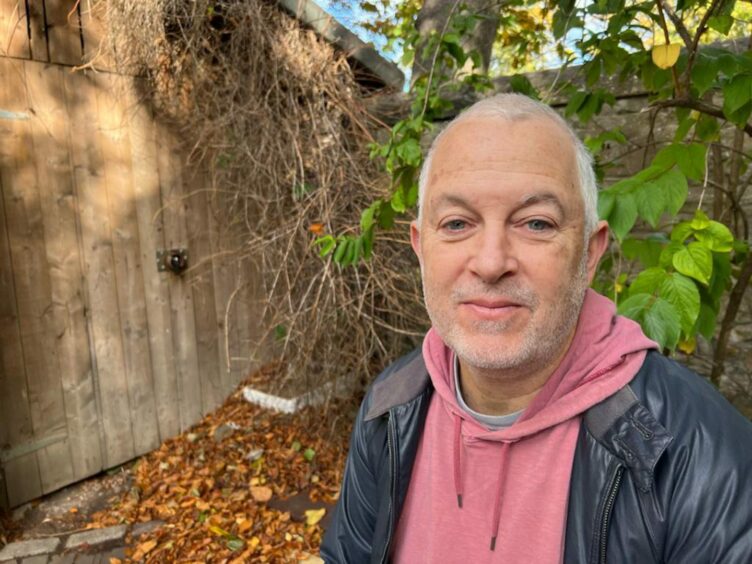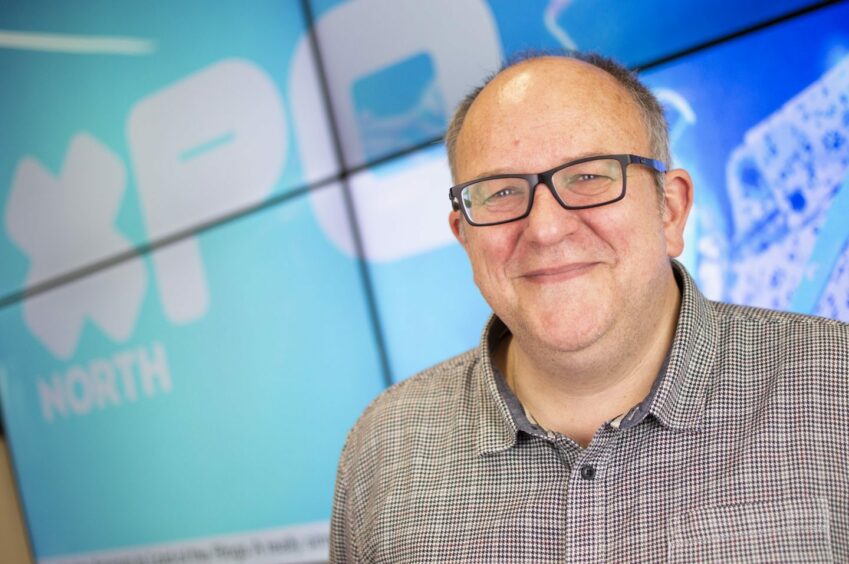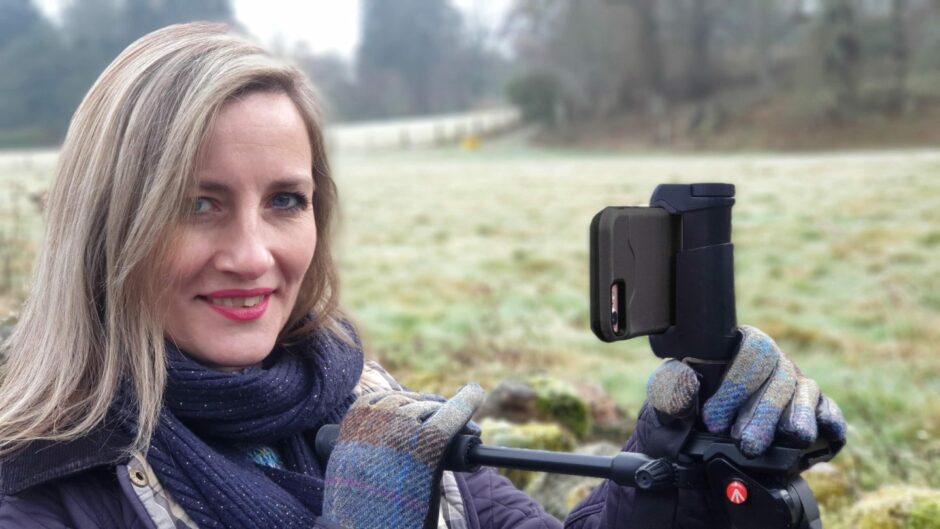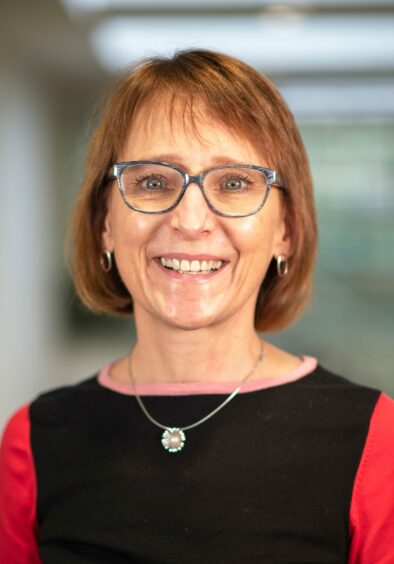As co-founder of one of the production companies behind film franchise The Matrix and television series The Walking Dead, Jason Lust is helping the Highlands go digital.
He must be used to performing lots of different tasks in many different situations.
Becoming a mentor for students at the University of the Highlands and Islands (UHI) will surely expand his repertoire even further.
Mr Lust is taking part in FutureCreative, a partnership between UHI and the Highlands and Islands Enterprise (UHI) XpoNorth Digital programme, which connects creative, digital and heritage students with mentors and wider contacts in the creative industries.
From Hollywood to the Highlands
Iain Hamilton, head of creative industries at HIE, said: “He was at the Oscars on the Sunday night with Pinocchio, the Guillermo del Toro film, and the following day he was doing a one-to-one phone call with a student from UHI.”
XpoNorth Digital’s year-round programme grew out of the original XpoNorth creative industries festival, which began in Inverness in 2013.
It is now part of the Northern Innovation Hub, a project funded through the £315 million Inverness and Highland City Region Deal, which was signed by Highland Council, HIE, UHI, and the UK and Scottish governments in 2017. The deal’s slogan was “region of digital opportunity”, highlighting the importance placed on digital skills.
The pandemic accelerated the need for businesses working in the creative industries to adopt those digital skills, but also increased their familiarity with using online services.
As well as FutureCreative for UHI students, XpoNorth Digital’s services include advice and support for businesses, from webinars and events through to one-on-one sessions and an over-arching inquiry service.
Museums in the Highlands get digital with smart app
Its next steps include a partnership with Smartify, an app used by museums including the Louvre in Paris and National Gallery in London, which allows visitors to point their mobile phones at pictures and exhibits, and find out more information about them online.
Six Highland museums will be taught how to produce content for the app, allowing them to reach a wider audience.
Ex-Nasa man highlights XpoNorth Digital mission
XpoNorth Digital’s services for businesses are already attracting attention internationally. One of its advisors, Jessica Fox, spent three years as a storyteller at Nasa. She introduced others in her team to the space agency’s former chief knowledge officer, Ed Hoffman.
Mr Hamilton said: “We ended up being featured in a book called The Smart Mission: Nasa’s Lessons for Managing Knowledge, People and Projects.
“This is a service that’s coming out of the Highlands and Islands that’s unique. We’re coming up with solutions and models for providing support that are just not available in other places. We have to be as ambitious as our clients.”
One of those clients is StrategyStory, an Inverness-based company that helps businesses and organisations to use storytelling to develop strategies. The firm was founded in 2017 by Professor Donald MacLean, a research fellow at Glasgow University’s Adam Smith Business School, and former BBC producer Kate Hooper.
Ms Hooper praised XpoNorth for helping StrategyStory develop its online training courses.
They’ve felt like an extension of our team in the help and support they’ve given to us.”
Kate Hooper, co-founder, StrategyStory
“They bring digital skills and experience, and contacts and knowledge in the creative industries world that has just been so helpful and opened doors,” she said. “They’ve helped us move a lot quicker to develop our online training courses than we would have done if we’d just been on our own.
“They’ve felt like an extension of our team in the help and support they’ve given to us.
“It’s been a friendly collaboration that’s worked both ways – they’ve given us support and help, and I’ve taken part in panel discussions for them.”
Away from the creative industries, the Northern Innovation Hub also helps a variety of other businesses develop digital skills.
Its services include a technology placement programme, which provides up to 70% of the funding needed for companies of all sizes on Highland Council’s patch to take on a student for about 12 weeks, or a graduate for 12 months to help them with automation, digitisation or other technological processes. In return, the businesses agree to pay students at least the “real living wage“, and graduates between £22,500 and £29,500.
Northern Innovation Hub development manager Deborah Tait said: “We wouldn’t fund a project that was purely for an off-the-shelf website, for example, or purely core marketing or social media, because they’re considered to be day-to-day requirements.
“We’re looking for projects that are going to add more value to the organisation by perhaps doing something that’s going to improve a process.”
Ms Tait added: “In the early days, we had some projects that were focused on high-tech engineering.
“But now we’re seeing customer relationship management systems and integration – getting systems to communicate with each other. I’ve had a couple of conversations about artificial intelligence.
“This field has evolved so quickly during the past couple of years, especially when it comes to integrating systems so that information can be accessed remotely and when people are working from home.”
Graduate placements have led to permanent jobs with north businesses
Since the programme began in 2018, around 35 graduates have taken part in placements, along with about eight students. Some of the graduates have gone on to be offered full-time posts at the companies they undertook projects for.
The students and graduates don’t just come from computer science or informatics courses either.
Ms Tait explained: “I’ve had graduates on placements recently who have studied Gaelic, geography, languages and science. Sometimes a client thinks they want someone from one discipline, but they end up recruiting from a different discipline. People who are graduating currently have got quite a high level of technological and digital skills, which they can transfer quite easily.
‘It’s about the cultural fit as well’
“It would be difficult to find a course where there isn’t a level of digital education or skills requirement these days. It’s not just about the skills level, and the job description and person specification. It’s about the cultural fit as well.”
Although businesses taking part need to lie within Highland Council’s boundaries, students and graduates can be from further afield. “We’ve had graduates come up recently from London, Glasgow – just all over,” added Ms Tait.





